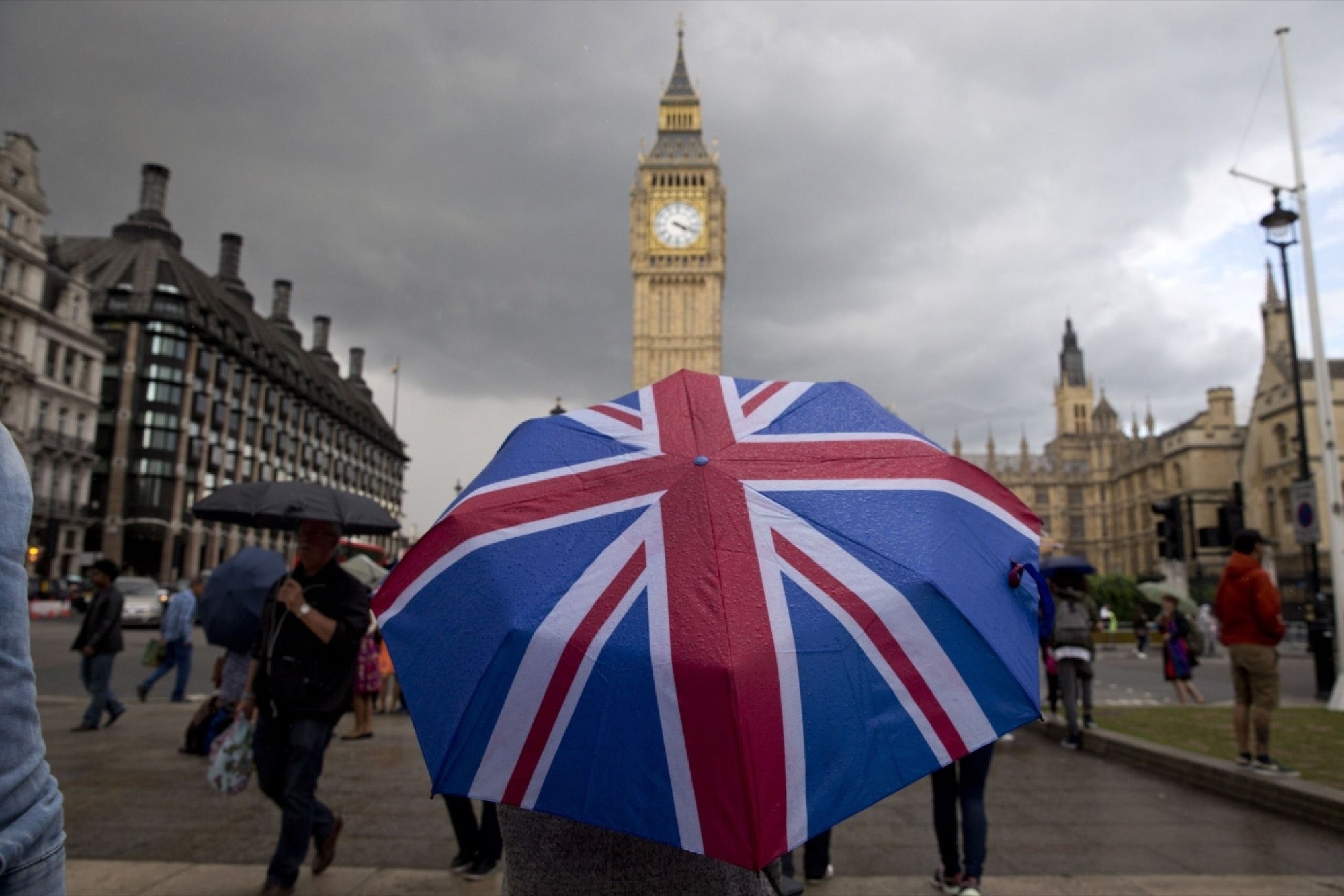Don't Say 'Tally Ho' To The U.K. -- Yet! Many of the predictions about Britain's imminent 'Brexit' are bad for U.S. businesses. But not all of them.
By Jeffrey Hayzlett Edited by Dan Bova
Our biggest sale — Get unlimited access to Entrepreneur.com at an unbeatable price. Use code SAVE50 at checkout.*
Claim Offer*Offer only available to new subscribers
Opinions expressed by Entrepreneur contributors are their own.

Unless you've been living under a rock, the news cycle has been dominated with news of Brexit -- a referendum in which the majority (51.9 percent) of U.K. citizens voted to leave the European Union.
Related: Brexit Turmoil Makes Britain a Bargain for U.S. Businesses
The referendum sent shock waves throughout the global financial markets, causing the Dow Jones Industrial index to plunge more than 600 points. The S&P 500 tumbled 3.6 percent and the Nasdaq joined in, down 4.1 percent. Since then, the stock market has been trying to climb back, but it's still down nearly 2 percent. The global markets don't like uncertainty, and Brexit certainly brought on a lot of that into the mix.
Global institutions like the International Monetary Fund called Brexit "negative and substantial." They even predicted that the U.K. decision could reduce its economic growth by up to 5.6 percent over the next three years -- assuming a worst-case scenario.
But, what does all that mean for U.S. businesses? Depends on whom you talk to.
U.S. economists are split on how Brexit will impact businesses that have dealings overseas. Some insist that in the bigger scheme of things, Brexit won't mean much here at home. Others say there could a massive capital flight to safety, driving interest rates lower, boosting the value of the dollar.
Federal Reserve Board Chair Janet Yellin said that Brexit played a role in her decision to keep interest rates unchanged, due to the volatility that would inevitably follow. Economists feel that that same volatility will remain high during Britain's two-year negotiation with the E.U., expected to begin in October or November, when new Prime Minister Theresa May invokes Article 50 to start the Brexit process.
As a result of Fed Chairman Yellin keeping interest rates low, here's a roundup of what experts say could be the fallout, good and bad, from Brexit here in the United States:
Related: Britain Just Voted to 'Brexit' the EU. What Does That Mean for Americans?
- Britain's exit could force U.S. manufacturers that operate in the U.K. to start paying tariffs on goods sent from England to the rest of the E.U. Those same goods would have to go through customs, adding time and costs.
- The increased value of the dollar over the pound could make U.S. goods more expensive in European markets.
- Regulators could be forced to re-evaluate intellectual property and branding rights regulations, creating more headaches for companies in Britain that may be forced to leave because the automatic right to work policy will no longer be in place.
- CD and bond yields could take a tumble. Since yield moves in the opposite direction of price, Brexit could affect conservative investors who look to bonds and CDs for investment income in their retirement income or portfolios.
- Mortgage rates are likely to continue to fall, letting home buyers more easily and cheaply finance the purchase of a home.
- Borrowing costs will also likely be lower, meaning entrepreneurs looking to invest to grow their business can do so at a lower cost.
- Tech start-ups have thrived in recent years due to the slow growth of the U.S. economy, and that ship still hasn't sailed. This might be a good time to try to raise capital.
- Cheaper European vacations may result. Tourism is a vital industry for any country, so the U.K. will need Americans who might be enticed to cross the Pond to leave their U.S. dollars overseas.
Entrepreneurs need to be savvy enough to tune out the noise and not give into mass hysteria. My advice is start brushing up on some of the new rules that will likely change as a result. Hundreds of new laws, rules and agreements will be re-worked, affecting everything from trade, to immigration, to agricultural subsidies. Higher shipping costs, lower margins and increased workloads could also be affected due to separate European distribution strategies.
The United States is the single largest investor in Britain, having exported $56 billion worth of goods last year – a small number compared to the $588 billion in U.S. investments, ranging from manufacturing to banking to real estate. We Americans also employ more than 1 million people there. In return, Britain invested nearly half a trillion dollars into the United States while employing more than a million workers here.
These numbers could be affected by Brexit alone; however, economists agree things could be much worse should there be a contagion effect from Britain's E.U. departure.
And the aftershocks continue: Scotland, which voted overwhelmingly to remain in the E.U., is calling for another independence referendum. In France, presidential candidate Marine LePen stated that if she wins in the fall, France will have its own referendum to leave the EU within six months. That promise/threat is something everyone should be playing close attention to.
U.S. businesses should pay attention, too; they need to start making contingency plans, should there be a mass exodus. While that development is unlikely to happen, it never hurts to prepare for every possible eventuality, considering how interconnected today's world economy is and how globalization affects everyone -- from Wall Street to Main Street.
However, not all is lost.
Business owners here at home need to keep in mind that the strongest businesses are built to withstand turbulence and adapt quickly to changing environments. If the service or product you provide helps a larger corporation do the same, unstable times could become a win-win situation.
Companies that can clearly communicate with their customers about the pain point they solve will always have a leg up with the competition.
Uncertainty is never something that's easy to manage, and we live in uncertain times; however, doing your homework, remaining calm during the storm and having faith that you're prepared for almost anything should serve as comfort to businesses here.
Related: The New Sick Man Of Europe – How To Invest After Brexit
Continue monitoring the situation, and look for every possible opportunity that may come as a result. Where other businesses are running away from other U.K. businesses as a punishment for Brexit, maybe there is room for others to run in! Where there is uncertainty, there is always opportunity.










